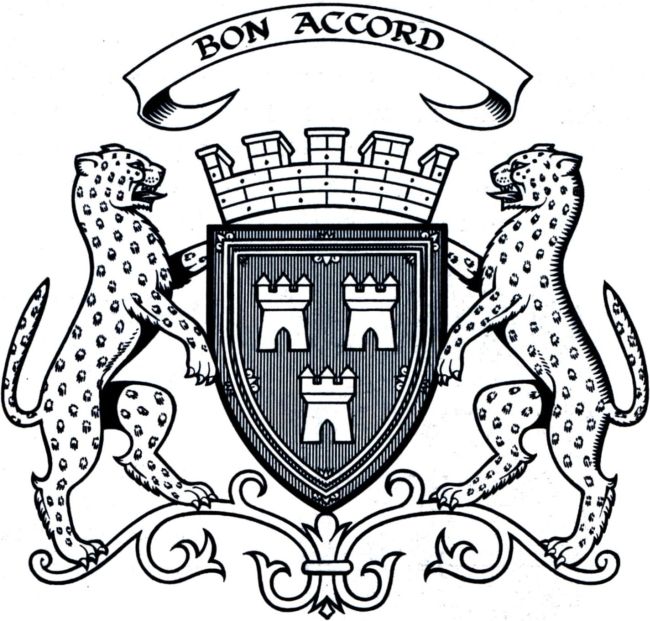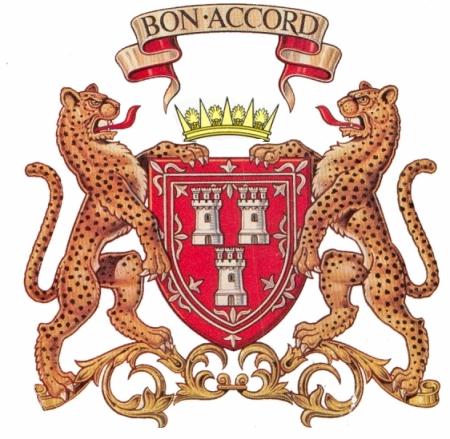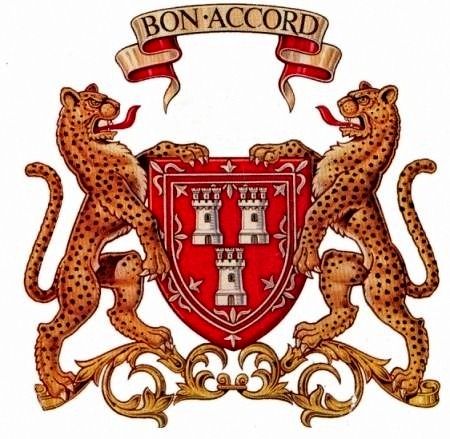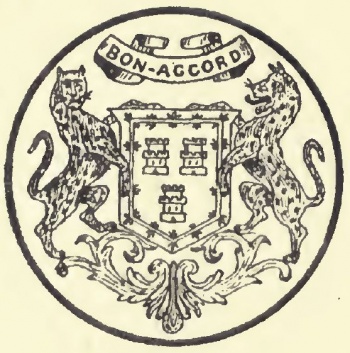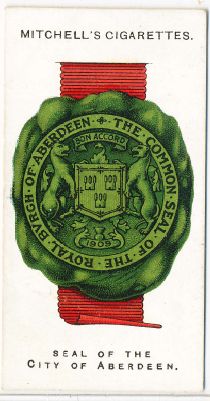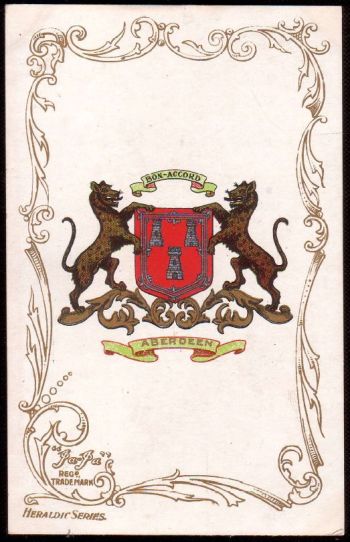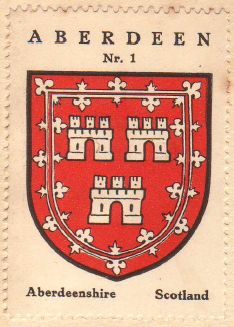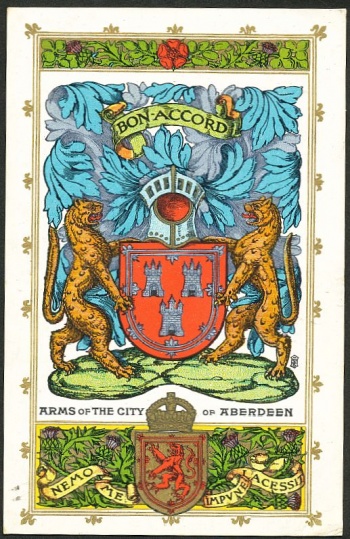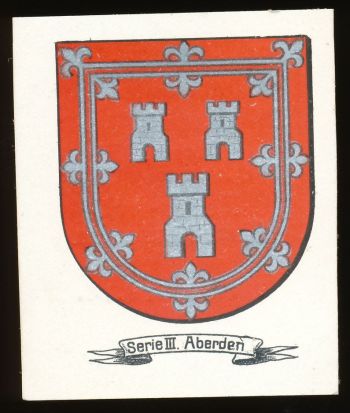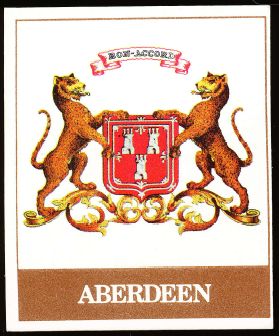Aberdeen
| Heraldry of the World |
| British heraldry portal Civic heraldry of the United Kingdom |
|
ABERDEEN
City
Additions: 1996 Aberdeen District
Official blazon
Gules, three towers triple-towered within a double tressure flowered and counterflowered Argent. Supported by two leopards Proper. Above the Shield is placed a Coronet appropriate to a statutory Council of a City, videlicet:- a mural coronet Or, masoned Sable., and in an Escrol above the same this Motto "Bon Accord".
Origin/meaning
The arms were granted on July 29, 1996.
The arms are those of the old Royal Burgh of Aberdeen with a mural crown.
The city does not use these arms, but uses the historical arms (without the crown).
District
Additions: 1975 Aberdeen City, Aberdeen district, Lower Deeside district
Incorporated into: 1996 Aberdeen City
Official blazon
Gules, three towers triple-towered within a double tressure flowered and counterftowered Argent; Supported by two leopards Proper. Above the Shield is placed a coronet appropriate to a statutory District, videlicet:- a circlet richly chased, from which are issuant eight thistle-heads (three and two halves visible) Or; and in an Escrol over the same this Motto Bon Accord.
Origin/meaning
The arms were granted on November 4, 1976.
The arms are those of the old Royal Burgh of Aberdeen with a district crown.
Burgh
Incorporated into: 1975 Aberdeen District Council of the Grampian Region
Official blazon
Gules, three towers triple-towered within a double tressure [flowered and] counterflowered Argent. Supported by two leopards Proper; the Motto in an Escrol above "Bon Accord".
Origin/meaning
The arms were granted on February 25, 1674.
The three towers already appear on the 15th century seals of the city and are said to represent the three fortified hills, Castle, Port and St. Catherine's. The city was originally built on and around these hills.
The Royal bordure is supposedly granted by King Robert I in 1308, to thank the citizens in their effort to recapture the castle in Aberdeen and to expel the English. However, it is more likely that the bordure was added by James I (1406-1437), together with the leopard supporters, as Aberdeen was one of the cities to underwrite his expenses during his exile in England.
The motto refers to the siege of 1308, when all English were killed in the city.
| Seal of the burgh as used in the 1890s |
The arms on a Mitchell's cigarette card, 1911 |
| The arms as used on a JaJa postcard +/- 1905 |
The arms in the Coffee Hag albums +/- 1935 |
| The arms on a Wills's cigarette card, 1906 |
The arms on a postcard +/- 1905 |
| The arms in the Abadie albums |
The arms in the Continentale Verlags-Anstalt album, +/- 1910 |
| The arms as used on trade card, 1954 |
Contact and Support
Partners:
Your logo here ?
Contact us
© since 1995, Heraldry of the World, Ralf Hartemink 
Index of the site Porteous, 1906; Bute et al; 1903; Urquhart, 1974, 1979, 2001


